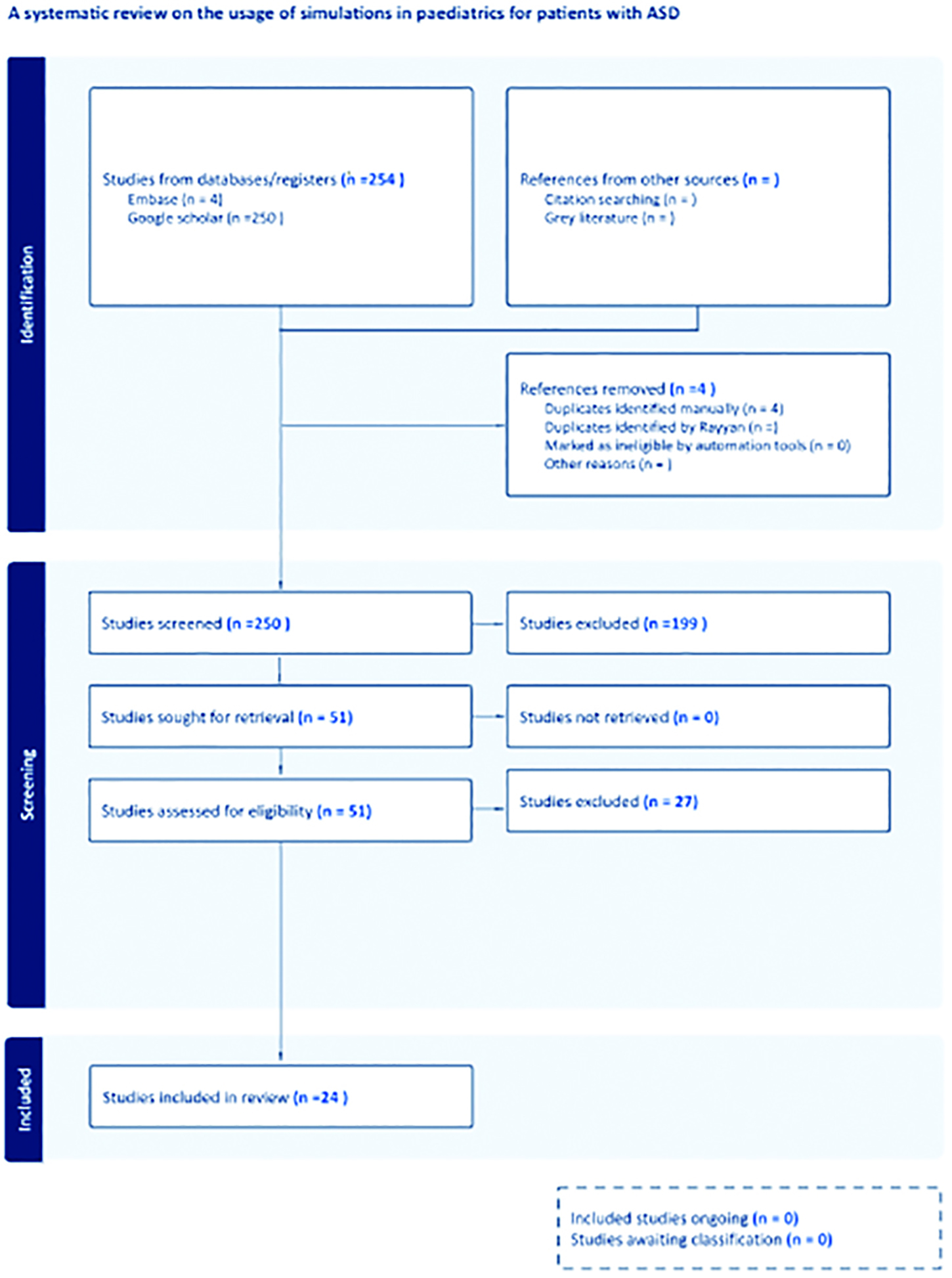
Sensory overload in children with autism spectrum disorder (ASD) poses considerable challenges within hospital environments, often resulting in heightened anxiety and behavioural disturbances [1]. Despite the increasing recognition of these needs, there remains a significant gap in research concerning the use of simulation-based education as a preparatory tool for healthcare professionals [2]. This review examines the impact of simulation training on paediatric staff managing sensory distress and aggression in children with ASD. In addition, the review will examine outcomes related to knowledge retention and practical skill development, while identifying barriers to the implementation of such training in clinical settings.
A rapid review design was employed to synthesise literature on simulation-based training for healthcare professionals managing sensory stressors in paediatric patients with ASD. Studies published from 2001 onwards were included, with searches conducted in Embase and Google Scholar. Search terms encompassed simulation training, paediatric medical staff, confidence, competence, and sensory overload. A PRISMA flow chart outlined the study selection process (Figure 1). Thematic analysis identified key themes related to training needs, barriers to stressor management, and simulation outcomes, while a narrative synthesis summarised intervention impacts and implementation challenges. Quantitative outcomes were presented using summary tables, bar charts, and bubble plots.
A total of 254 references were initially identified, 4 duplicates removed, 250 studies remained, of which 199 were excluded. 51 full-text articles assessed, 27 were excluded, 24 studies included in the final review. Simulation-based training significantly improved healthcare providers’ ability to manage sensory overload and behaviours in children with ASD. VR-based Behavioural Skills Training notably enhanced the accuracy of Functional Communication Training steps, while paediatric nurses reported increased confidence in handling ASD-related behaviours. Simulation exercises also improved diagnostic accuracy, communication, and clinical decision-making.
The findings of this systematic review highlight the transformative potential of simulation-based training in improving the skills, confidence, and competence of healthcare professionals managing sensory overload and behavioural challenges in children with ASD. Studies demonstrated significant improvements in diagnostic accuracy, communication, and critical thinking with technologies like virtual reality offering immersive and representative training experience. However, barriers such as small sample sizes, limited studies, and inconsistent reporting of difficulties faced by participants, particularly in VR were noted. Future efforts should focus on expanding current research inclusivity to improve patient care.
As the submitting author, I can confirm that all relevant ethical standards of research and dissemination have been met. Additionally, I can confirm that the necessary ethical approval has been obtained, where applicable.
1. Hamdan SZ, Bennett A. Autism-Friendly Healthcare: A Narrative Review of the Literature. Cureus [Internet]. 2024 Jul 8;16(7). Available from: https://www.cureus.com/articles/270015-autism-friendly-healthcare-a-narrative-review-of-the-literature.pdf
2. Mitchell MJ, Newall FH, Sokol J, Williams KJ. Simulation-Based Education for Staff Managing Aggression and Externalizing Behaviors in Children With Autism Spectrum Disorder in the Hospital Setting: Pilot and Feasibility Study Protocol for a Cluster Randomized Controlled Trial. JMIR Research Protocols. 2020 Jun 4;9(6):e18105.
